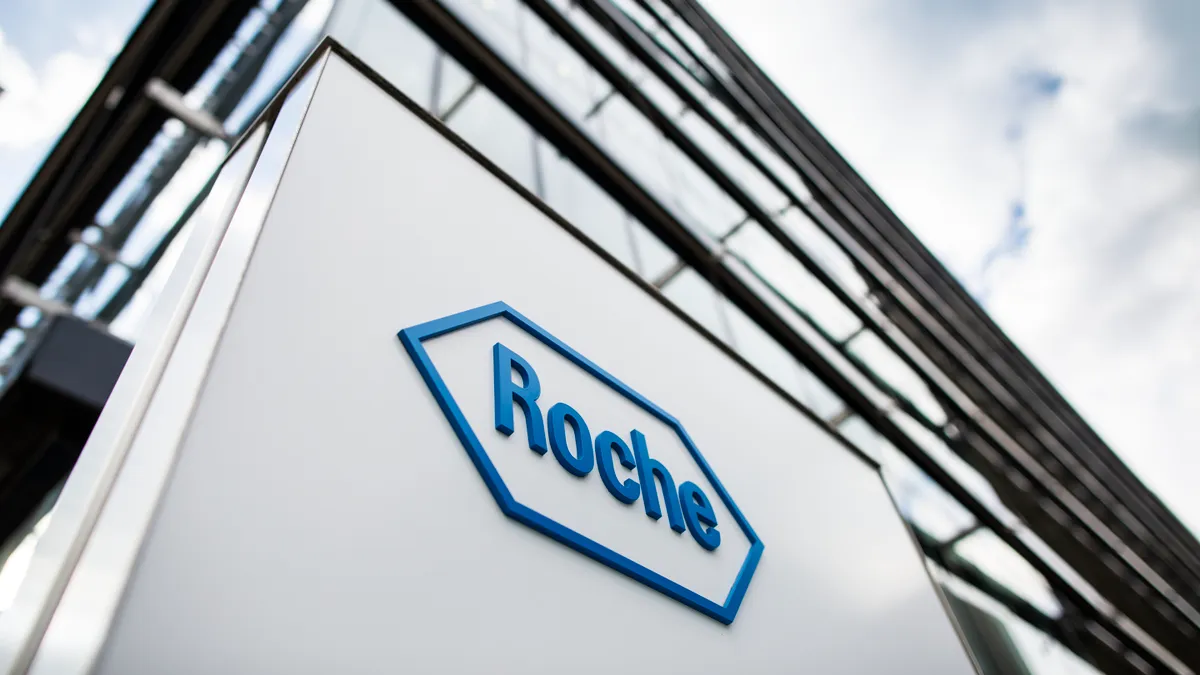Dive Brief:
- Roche's diagnostics division reported first-quarter sales of 4.3 billion Swiss francs ($4.68 billion), up 55% fueled by its COVID-19 testing business, while routine non-coronavirus testing grew 80% despite the pandemic.
- The testing giant continued the momentum from the fourth quarter when it reported 28% sales at its diagnostics division. Roche CEO Severin Schwan told investors on Wednesday that routine diagnostic testing has started to recover as healthcare systems normalize operations.
- Roche sees growth for COVID-19 testing continuing in the second quarter. While the company expects to see growth in molecular tests, it will not be at the same levels seen earlier, according to Thomas Schinecker, CEO of Roche Diagnostics. However, Schinecker expects an uptick in rapid antigen test sales in the second quarter.
Dive Insight:
The Swiss testing giant was the second major diagnostics company to report first-quarter earnings this week. Abbott Laboratories on Tuesday revealed that coronavirus testing-related sales fell from $2.4 billion in the fourth quarter to $2.2 billion in the first quarter, suggesting a slowing of COVID-19 test demand with the rollout of vaccines.
Abbott CEO Robert Ford told investors on Tuesday's earnings call that COVID-19 testing is "difficult to forecast right now." Roche's Schwan echoed those sentiments, while at the same time commenting that "as long as populations are not yet sufficiently vaccinated" at-home coronavirus tests can be "a very important weapon to interrupt infection."
Roche has multiple products across the COVID-19 market, including PCR, antigen and antibody tests. In the first quarter, the company's point of care and molecular lab businesses made the largest contributions to its diagnostics division with 281% and 86% increases, respectively.
Schinecker on Wednesday's investor call touted the fact that the company's COVID-19 portfolio is "comprehensive and growing" with its multitude of tests and digital products, including its SARS-CoV-2 rapid antigen test using a nasal swab for patient self-testing which has been approved in several European countries.
However, Schinecker last month warned at a diagnostics investor day that lower viral loads present in vaccinated individuals could lead antigen tests to deliver more false negatives. As a result, he made the case that as COVID-19 cases fall and vaccinations rise, turnaround times and viral loads could drop, tipping the balance in favor of PCR.
Roche announced last month a deal to buy GenMark Diagnostics for roughly $1.8 billion, which is expected to be completed during the second quarter. The acquisition fills Roche's portfolio gap in molecular multiplexing and is meant to give it access to GenMark's tech for testing a broad range of pathogens with one patient sample. Specifically, Roche contends the deal will broaden its COVID-19 test offerings.
Schinecker said Wednesday he doesn't provide guidance on coronavirus testing given the unknown variables impacting the market, including the vaccine rollouts and the emergence of variants. However, he insisted that "people will be testing for quite some time" because "different parts of the world will not have achieved herd immunity in terms of vaccination and school children will not be vaccinated most likely."
Nonetheless, Schinecker predicted that second-quarter COVID-19 sales "will be strong" continuing into the third quarter, adding that the company is "much stronger than we had hoped for" when it comes to non-coronavirus routine testing.












